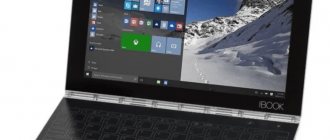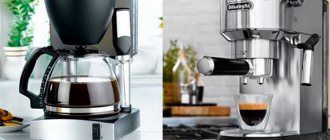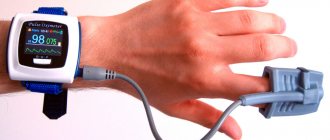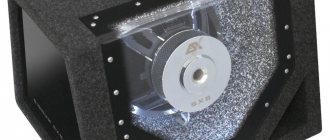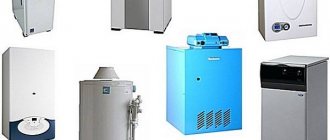Portability
The visible difference between a netbook and a laptop is its significantly smaller display size, body thickness, and weight. If the diagonal of a standard laptop can reach 20 inches and fully replace a monitor, for example, an all-in-one, then for a netbook this parameter is 12 inches maximum. This makes the device lighter and more compact. However, the small screen will not allow you to enjoy a detailed image, so watching movies, playing games and working with spreadsheets on it is not very convenient.
Modern models have such a thin body that the netbook fits into any bag or even pocket. This feature is good for travelers, because the netbook is convenient to use in cafes, transport and other places. It was created for those who need to quickly type a message, read an article, or view files, even in extreme situations.
Interesting read: How to choose a netbook
Laptop or netbook? How to make the right choice
The issue of choosing between laptops and netbooks has long been the subject of debate. Which of these computers should you prefer? What are their advantages and disadvantages compared to each other? What does saving on a netbook or overpaying for a laptop mean? We decided to answer these questions in detail.
IMPORTANT!
In reality, the price difference between a laptop and a netbook is not as great as is commonly believed.
Both an ultraportable laptop and a netbook can serve as the main personal computer for a highly mobile user. Let us immediately note that such people rarely need high speed or functionality. Their tasks, as a rule, are “office”: Word-Excel-ICQ-mail-Internet plus a couple of other applications of the same level. It is they who most often think about what to prefer – a netbook or a full-fledged “ultraport”.
If we make a general comparison of netbooks with laptops, the picture emerges as follows. The size difference between 10 and 12 inch computers is relatively small. That is, the differences in ergonomics are also not so striking. But in terms of weight, the netbook wins almost twice – its normal weight is 1.1 kg, and a 12-inch laptop – 1.9 kg. Netbooks with a 12″ screen look like the most successful compromise in this regard - they are closer in weight to 10-inch netbooks, while the size of the keyboard and display is the same as that of classic “ultraports”.
| Laptop only If the size of the screen and keyboard, as well as the ease of use due to the large diagonal, matter, the problem of choice is solved in only one way. A netbook is not a competitor to a laptop with a screen diagonal of 14–15″, under any circumstances. |
In terms of equipment, there are four most significant differences between laptops and netbooks. First, laptops almost always contain an optical drive (usually DVD±RW), it is either built-in or external and lies in the box next to the device; Netbooks never have optics. The second is screen resolution. The 1024x600 pixels value for netbooks automatically makes them less suitable for working with large tables or graphics, however, all 12-inch models have an image height of at least 768 pixels. The third difference is a PCMCIA or Express Card expansion slot, which laptops always have, but are very rare in netbooks. This option is of interest mainly to those who plan to actively use mobile Internet access or a TV tuner. Finally, netbooks are limited to 160GB of hard drive capacity and laptops are limited to 250–320GB, so that extra capacity can make a difference. All other differences in configuration, including the number of USB ports, are insignificant and are usually considered only in special cases.
As for performance, technically the performance of any laptop, including an ultraportable one, is several times higher than that of a netbook due to the fact that any “large” processor, be it Core 2 Duo (even from the ULV line), Celeron or Turion is much more powerful than Intel Atom. If we talk about 3D, then if there is at least some kind of discrete video chip in a laptop, its gap from a netbook increases to 10–20 times. But these are all “synthetic” indicators, and in reality the difference in performance is leveled out by two factors. Firstly, laptops, as a rule, run Windows Vista, and netbooks run XP, and this ultimately gives comparable speeds for performing system operations. Secondly, tasks that are usually performed on the go are quite simple, and there is simply no noticeable difference in performance. But in “heavy” tasks and games it will still appear.
| Only a netbook Netbooks, especially their smallest models, should definitely be given preference in two cases. The first is if you need a temporary alternative to a constantly used “large” laptop, which you can take with you on trips and walks. The second is if the netbook is bought as a personal computer for a not very “advanced” family member. |
With autonomy it can be different - it all depends on the specific model and configuration. Netbooks with 2200 mAh batteries should already be avoided, since in reality they last up to 2 hours, which is absolutely not enough. The autonomy of “ultraports” is influenced, on the one hand, by fairly fast processors, and on the other, by the need to reduce size and weight. As a result, you can usually expect about 3 hours of operation from such a laptop with a battery capacity of 5000–6000 mAh; for more, an extended battery is required (sometimes included), with which the computer significantly adds weight. Netbooks with the same 5200 mAh can easily last about 5 hours without recharging, so they win in this category.
What's the end result? Contrary to prevailing stereotypes, the price criterion when choosing between a netbook and an ultraportable laptop does not play too much of a role. The fact is that those who closely follow the development of a new class of devices “missed” the sharp reduction in prices for classic 12-inchers - now these are computers not for $1500–2000, but for $800–900. So the most important thing is what tasks the computer is needed for and how it is intended to be used. If your first priority is to lighten your load on the way to work and home, take a full-fledged 12-inch laptop. Significant arguments in its favor may include: the need to regularly work with optical discs, resource-intensive applications, the need for PCMCIA/EC peripherals, and the desire to play. But a netbook is preferable for anytime & anywhere work; this is an option for those who move a lot and do not have fixed jobs. It is also suitable for those for whom almost 1 kg of weight or $300 in savings is critical. But in any case, the choice between these classes of devices is very individual, so even if you agree with our conclusions, you will have to seriously think about it.
| Laptop vs netbook: 10″ | Laptop vs netbook: 12″ | |||
| ASUS N10J | MSI Wind U100 | Samsung Q210 | Samsung NC20 | |
| Laptop | Netbook | Laptop | Netbook | |
| Price | $885 | $530 | $980 | $650 |
| A netbook is more profitable - if you choose it over a laptop, you will save 40% | Netbook is a third cheaper | |||
| Dimensions and weight | 276×195×37 mm, 1.4 kg | 260×180×32 mm, 1.27 kg | 299×217×27–36 mm, 1.98 kg | 292×216×25.6–31 mm, 1.52 kg |
| Netbook is preferable because it is smaller and lighter | A netbook is better - it's lighter and thinner | |||
| Platform | Intel Atom N270, Intel GMA950+GeForce 9300M GS graphics, 256 MB, 2 GB memory | Intel Atom N270, Intel GMA950 graphics, 1 GB memory | Intel Core 2 Duo P8400, NVIDIA GeForce 9200M GS graphics, 256 MB, 2 GB memory | VIA Nano U2250 1.3+, VIA Chrome9 graphics, 1 GB memory |
| The laptop benefits from double the memory and a discrete 3D accelerator | The laptop wins thanks to significantly more powerful hardware | |||
| Drives | HDD 320 GB, external DVD±RW included | HDD 160 GB | HDD 320 GB, built-in DVD±RW | HDD 120 GB |
| The laptop is more attractive thanks to double the hard drive capacity and the inclusion of an external optical drive | A laptop is preferable - it has double the hard drive capacity and a built-in DVD burner | |||
| Screen | 10.2″, 1024×600 pixels | 10.2″, 1024×600 pixels | 12.1″ (1280×800 pixels) | 12.1″ (1280×800 pixels) |
| Rivals are equal | Combat draw | |||
| Battery capacity | 4400 mAh | 2200 mAh | 5200 mAh, 7800 mAh | 5200 mAh |
| The laptop is equipped with a more capacious battery, but the U100 package is available with a 5200 mAh battery | The laptop wins thanks to the included extended battery | |||
| Autonomy | ||||
| In this configuration, the laptop wins, but a capacious battery will allow the netbook to get ahead | A netbook is better: under load it can work only a little longer than a laptop, but in a lighter mode it breaks away from its opponent very significantly | |||
Technical characteristics or “iron filling”
When choosing a personal PC, size matters, but not as much as the technical parameters of the devices. The latest generation of laptops from famous brands also boasts an ultra-thin and mobile design. What is the difference between laptop and netbook hardware:
- Processor power . Portable personal computers are designed taking into account the fact that the device is intended not for full-time work, but for additional work. Therefore, developers are more focused on reducing the size than equipping the gadget with modern technologies. Often, the netbook lineup has an Intel Atom processor, which is one of the weakest on the market. The advantage of such equipment is low energy consumption, but the disadvantage is the inability to work with heavy programs.
Some compact laptops from the Apple, Lenovo and Asus brands also run on more powerful hardware - Core m3 and i3, but they are more expensive.
- Video card . The graphic capabilities of a netbook are limited, since the devices have a low-quality controller. Applications and games of the new type will not run on low-budget devices, and on more expensive devices the work will not be as fast and stable as on gaming laptops. Netbooks are not suitable for gamers and graphic designers, photographers and editors who work with complex programs.
- Hard drive size . Portable laptops have much smaller hard drive capacity and are not as fast. SSD drives in netbooks are less than 700 GB, while standard personal PCs can have up to 4 TB. This disk capacity is needed for those who work with a large number of files, download various programs, and watch a lot of audio and video content. To supplement office work or use the device for communicating on social networks, 200 GB, which are available in each netbook, is enough.
- Amount of RAM . RAM on modern laptop models, for example, Asus and Dell, reaches 4 GB, which is enough for work. Netbooks do not replace a computer and do not fill the need for powerful hardware. Designed for fast communication, they are more like a functional tablet with a keyboard. Therefore, if you need to work with a large number of files and programs open at the same time, then it is better to choose the largest volume of OP. For normal use without special loads, you can get by with 2 GB of RAM.
Characteristics of a netbook: how it differs from a laptop
Let's highlight the main features:
Purpose
The main thing that distinguishes the two devices is their primary task. The netbook was designed primarily for mobile use. Of course, no one forbids using a laptop in a cafe, traveling, studying or working. But since it is more bulky, it is therefore not so convenient for these purposes.
In addition, some laptop models can become a full replacement for a desktop computer. A netbook cannot do this. You can say this - it is an addition to the PC.
Therefore, when choosing a suitable laptop computer model, consider the purposes for which it will be used.
Portability
The first thing that catches your eye when choosing equipment is the size of the devices. This is the characteristic that defines the obvious difference between them.
So, the standard laptop screen diagonal is 15.6 inches. The size of the display depends on the diagonal of the display. In addition, models with larger dimensions can be found on sale. Their diagonal can reach 20 inches or more.
Reference. Most often, a large screen can be found on powerful gaming models. They are quite bulky and heavy, so they are intended for home use.
If we talk about a netbook, then for it this characteristic will be 12 inches maximum. This makes it light and compact.
Reference. It is worth keeping in mind that a small screen imposes certain limitations, because it is not able to provide a high-quality picture. Therefore, it is not very convenient to watch movies or work with text editors.
"Iron"
Of course, size plays an important role when choosing the right laptop option. However, they are not as significant as technical characteristics . In addition, the latest generation of laptops from some well-known manufacturers are also distinguished by their ultra-thin design and low weight.
What is the difference in the “stuffing” of a netbook and a laptop:
- CPU. The design of netbooks means that they will become an addition to a desktop computer, and not a full-fledged unit. Therefore, manufacturers equip them with compact, rather than powerful and modern components. This allows them to remain small in size. For example, many models of miniature netbooks are equipped with an Intel Atom processor, which is considered one of the least powerful of all the options presented. This “filling” makes the device economical and inexpensive, while making it impossible to work with “heavy” software. At the same time, some modern laptop models are equipped with a powerful processor, for example, Intel Core i5 or i7. It allows you to work with any programs, even professional software, and play games. However, such models are quite expensive.
- Video card. The miniature computer is equipped with a low-power controller. Therefore, it has limited graphics capabilities. Many programs and games simply cannot run on it. Therefore, if you work with “heavy” software, graphic editors, or like to play video games, give preference to laptops equipped with a powerful video card.
- Hard disk capacity. On some laptop models, the HDD capacity can reach 4 TB. At the same time, it is quite difficult to find a miniature computer on sale even with 700 GB of memory.
- RAM. The RAM of most modern laptop models reaches 4 Gb. This volume is quite enough for watching video files, working with a variety of software, and playing games. In addition, if necessary, the volume can be increased up to 32 Gb. Netbooks cannot boast of a large amount of RAM. For most models it does not exceed 2 Gb.
Keyboard
The keyboard of most laptops is similar to the one used to work with a personal computer. In addition, devices with a screen larger than 20 inches may have additional “gaming” keys.
If we talk about miniature models, their size imposes limitations. Therefore, the keyboard of such devices is devoid of some buttons. For example, here you will not find “hot” buttons or system keys. In addition, the buttons themselves are small, and the distance between them is not maintained. Therefore, it is not very convenient to type large texts on them.
Software
The low-power hardware of netbooks also affects the installed software. Compared to its older “brother”, it is weaker. Therefore, such devices are not suitable for normal operation. Linux OS is integrated on most models. It is lightweight and more optimized for working with low-power gadgets. More modern versions are equipped with a “stripped-down” version of Windows.
Reference. The configuration of the laptops allows you to install any version of the operating system.
Price
Even the most budget laptop will cost more than a netbook with average specs. Therefore, if your goal is to save money, buy a miniature computer. It will be a good assistant for communicating on social networks and Internet surfing.
Laptop and netbook keyboard
The larger the device, the larger the display and keys. Regular laptops have a functional keyboard similar to that of a desktop device, and models with a display larger than 20 inches are also equipped with special gaming keys.
As for netbooks, due to the small size of the case, the keyboard is incomplete and lacks some “hot keys”, additional numeric layout and device control buttons. The keys themselves are small and there is no space between them for convenient printing of large texts. If an office worker is faced with the choice between a laptop or a netbook, then the latter gadget is inferior to the former.
What is the difference between a netbook and a laptop and which is better to choose?
What is the difference between a netbook and a laptop - The main differences between a netbook and a laptop are performance, dimensions, screen size and quality, functions of additional keys and device autonomy. The most important differences are the main processor, RAM, video card, hard drive capacity, and display size.
Many people today do not understand the difference between devices such as a netbook and a laptop. First of all, it should be noted that a netbook is smaller and more compact, less productive, and can also work much longer without recharging.
Described in more detail in the article below.
Difference between laptop and netbook software
The technical parameters of netbooks are weaker, so standard operating systems and programs are not suitable for their full operation. For smooth and productive use of the device, it is installed by default with Linux OS, which “weighs” less and is more optimized for low-power PCs.
The disadvantage of the system is the complexity of its operation, as well as the limited application market. For newer netbook models, a specially stripped-down Windows OS is installed. There is no such problem in laptops - you can install any user-friendly software system on them and it will work properly.
Which is better: netbook or laptop?
For full-time work in one place (home or office), as well as for movie nights and games, laptops are more suitable. They have more powerful technical specifications, larger display diagonals, and better graphics adapters, controllers and video cards. Even if the model is low-budget, over time it is improved and more modern “filling” is installed. The battery capacity is enough to complete work processes in the event of a sudden voltage failure and loss of power supply, and the device is used from the mains.
Netbooks have gained popularity not because of their hardware, but because of their small size. The small, slim body weighing up to 1.5 kg is convenient to carry with you everywhere in a bag, briefcase or large pocket. It is indispensable during an urgent trip somewhere, traveling and a device for communication outside the home. The netbook is convenient to use in places without electrical coverage, because the battery charge lasts up to 10 hours of intensive work. The disadvantage of such a PC is that even if desired, it cannot be improved (the case cannot be disassembled, the parts are soldered in). Users will not be pleased with the lack of an optical drive for viewing files on disks and fewer USB ports.
Laptops and their advantages
Today, the most advanced device that can be used for work, for study, for computer games, for surfing the Internet, and for watching movies, is a laptop.
Of course, laptops are different, and not all of them are suitable for modern video games. However, judging in general, laptops have better performance compared to their smaller brothers: they have more powerful processors, a better video card, higher RAM capacity, and more storage capacity for internal files. In addition, the larger screen of these devices is better suited for watching movies, working with text documents, tables and images. However, their only drawback compared to netbooks is their large size and weight, which is why not all such devices can be called mobile.
